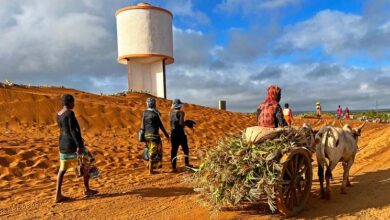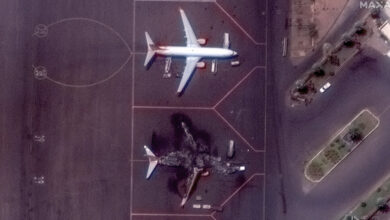Prove who you are: dealing with the plight of those without legal identification

Percy Santos, a blind college student in Honduras, recently received his digital ID card from the government. “The new ID is perfectly designed for people like me. This is a personal fulfillment. I feel better defined,” he said.
Mr. Santos is one of 5.4 million people who have signed up to the new population database in Honduras, established with the help of the United Nations Legal Identity in the country project. with a particular focus on Indigenous peoples, LGBTQI+, minorities and people with disabilities. Thanks to the digital card, he can now easily access social benefits.

In addition to making life easier for people like Mr. Santos, the new system also helps the Honduran government create a more robust electoral database, significantly improving the voting system in the 2016 election. 2021 and help reduce distrust of the electoral system.
Chances of success in life without legal identification are very low. It’s much harder to get a job in the formal economy and potentially benefit from social protection or basic health care systems during pandemics like COVID-19or during times of conflict or climate emergency, would be negligible. The lack of legal identity could affect insurance, pensions or even basic utility services like water, phone and gas connections.
The Honduras project is just one example of how the United Nations is helping countries in their efforts to establish a national population register, a national ID program or a digital ID program.

Sierra Leone: identifying people displaced by conflict
In Sierra Leone, years of armed conflict and the widespread human rights abuses associated with it, have resulted in significant internal displacement and statelessness.
United Nations Development Program (UNDP) and partners are helping the government integrate the stateless, displaced population so that the undocumented can receive a National Identification Number (NIN).
This means they can get a driver’s license, apply for official jobs and, most importantly, have a legal identity. For the government, that means tracking the revenues generated from taxes, reducing corruption, proper checks and balances, and increasing security.
Thanks to these efforts, Sierra Leone now has a digital profile of six million people who were previously undocumented.

Zambia: The number of registered births increased sharply
The United Nations is a key partner in making registration more accessible in Zambia, helping the government install an integrated and digital national registry system that includes Zambians from birth until birth. died, in different parts of the country. The same legal identity works for immunizations, as well as for enrolling children in school.
As a result, Zambia has seen its birth registration rate increase from 14.3% to 84% in 2022.
“In addition to providing legal identity from birth to death and its contribution to maintaining internal security, an integrated national registry will provide reliable vital statistics reliable and timely for the purposes of planning and providing targeted social services to eligible populations,” commented Jacob Jack Mwiimbu, Minister of Interior and Internal Security of Zambia.

Mozambique: A ‘groundbreaking initiative’
Mozambique, a country with a low level of civil status registration – 12.1% of deaths and 49% of registered births – is one of the pilot countries of the United Nations Legal Identity Agenda. country.
As part of a project to improve national identification and registration databases, the United Nations country team has developed a plan to improve these figures and create civil registration systems. , vital statistics and identity management.
The project has been hailed by the highest-ranking UN official in Mozambique, Myrta Kaulard. “The Legal Identity Agenda is a groundbreaking initiative to benefit from migration and secure the rights of those already in the country,” Ms. Kaulard said.




